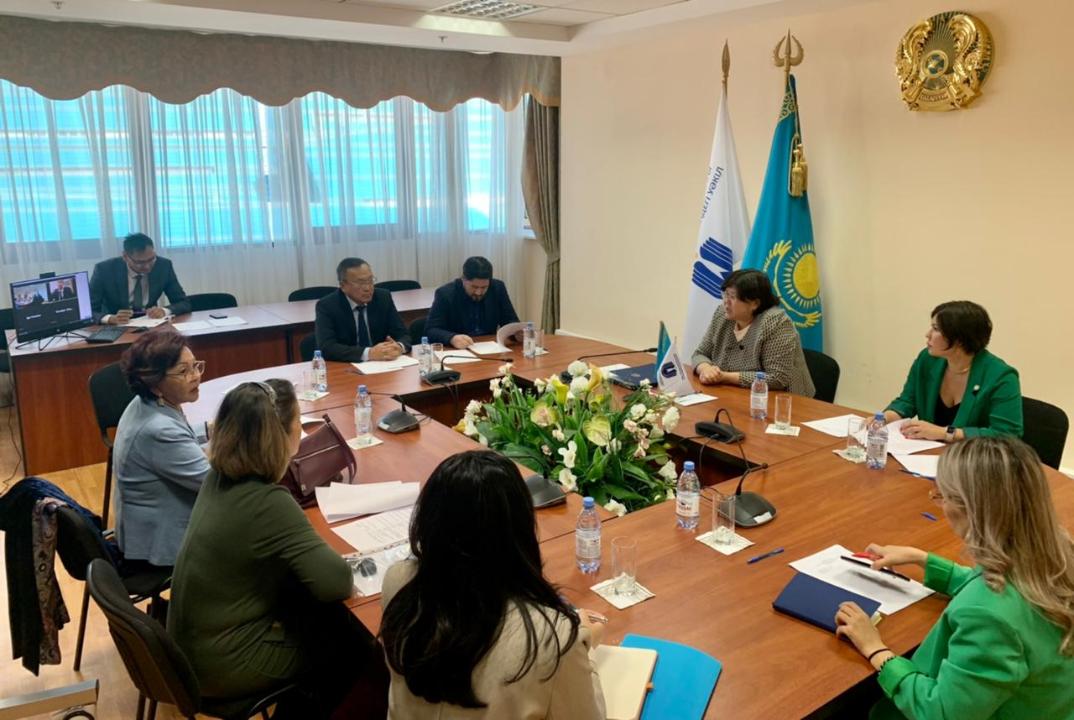As Voltaire argued, ‘laws were made to help citizens as much as to intimidate them’. In this context, the main purpose of the new Law on the Commissioner for Human Rights in the Republic of Kazakhstan, which was passed on 5 November 2022, is to ensure the safety of people. Guided by the new norms, the office of the Ombudsperson intends to contribute to strengthening the rule of law and the systemic reinforcement of human rights activities in Kazakhstan, a country that regularly attracts the interest of our European partners, NGOs, and human rights defenders.
In the new law, Kazakh legislators accepted more than 50% of the recommendations of the European Commission for Democracy through Law (Venice Commission). The latter’s positive feedback specifically on the competences of the Ombudsperson motivates us to actively cooperate with European colleagues.
In order to introduce positive changes in the human rights situation in Kazakhstan, the Ombudsperson should ensure real independence as well as increase the access of citizens to constitutional review and strengthen the available human rights instruments.
Our aim is to consolidate among the Kazakh society and state officials a clear understanding that the protection of citizens’ rights and freedoms is a priority of public policy at all levels. If the executive authorities fail to do so, the Ombudsperson will assist in the restoration of human rights and freedoms and promote knowledge in this area.

Thanks to legislative changes, in the new status the Ombudsperson has the right to appeal to the basic level courts with lawsuits related to defending rights of citizens, to the Supreme Court with a proposal to give explanations in cases of mass and gross violations of human rights, and to the Constitutional Court on the constitutionality of normative legal acts affecting human rights and freedoms; to freely visit organizations providing special social services and institutions of the penitentiary system, including to make audio, photo and video recordings of convicted, detained and other persons. In addition, the Ombudsperson can now act as an observer for human rights and freedoms in other states.
But first and foremost, the Ombudsperson’s office and its regional representatives have the task of extending their support to as many citizens as possible. Through our work, we would like to contribute to the strengthening of an inclusive society in Kazakhstan, an indicator of democracy and sustainable development.
Certainly, my office addresses the issue of tortures, cases of which were confirmed after the tragic events of January 2022 in Kazakhstan.
The Ombudsperson coordinates the activities of the National Preventive Mechanism for the Prevention of Torture and Other Cruel, Inhuman or Degrading Treatment or Punishment, whose participants are representatives of the civil society in different fields (lawyers, social workers, medical workers). The NPM’s work is aimed at identifying human rights violations in penitentiary institutions and other special institutions providing temporary isolation from society.
We are taking measures to increase the capacity of NPM participants, their knowledge and experience in this area, and are studying the experience of other countries to make this institution more open and accessible to preventing and detecting torture and ill-treatment.
The institutions visited by NPM members are not only places of detention, but also medical and social care institutions, residential care homes for children and others.
The NPM’s key role is prevention of torture, as well as identifying systemic violations and problems, followed by legislative proposals.
They are not only to establish violations, but also to warn local executive bodies and officials if they are of a systemic nature.
Representatives of the Ombudsperson in the regions of our country have a great deal of work to do. Previously there were none. Now our representatives in 17 regions of Kazakhstan have begun their work. A regional office can address issues of inadequate access to drinking water, social support for vulnerable categories of citizens, providing them with housing, legal assistance, etc., which is especially important to protect the rights of citizens living in rural areas and small towns.
The Ombudsperson does not solve these problems alone but acts as a liaison between individual citizens and officials, contributing to the prevention of human rights violations and the strengthening of the rule of law.
Overall, despite the conditions of the COVID-19 pandemic, the January events, and the increasing economic problems due to the challenging geopolitical situation, I believe that overall, the sense of security of citizens of Kazakhstan has been growing in recent years.
There are more and more applicants, from which we can conclude that there is a social demand for fairness in the activities of executive bodies at various levels. In 2022, the number of applications and complaints received doubled (to about 3,000) compared to the previous year.
In addition to dealing with written appeals, we also receive citizens in person on a weekly basis. We have dealt with a variety of appeals related to the criminal investigations, social and medical care, obtaining citizenship, education, adequate working conditions, issues of citizens deprived of their liberty, etc.
But the society in Kazakhstan is also increasing the culture of work and responsibility of state bodies, all branches of state authority for observance of rights and freedoms of the citizen. In order to build an effective institute for responding to citizens’ appeals to protect their rights, it is necessary to eliminate a formalist approach and indifference among civil servants, because we are talking about our fellow citizens.
In its work, our office strives to conform to the goal stated in Article 1 of the nation’s Constitution that an individual, his or her life, rights and freedoms are the highest values of Kazakhstan.
We are determined to continue our work to strengthen the national mechanisms for the protection of human rights in Kazakhstan and to co-operate more effectively not only with governmental bodies and civil society in our country, but also with our European and other international partners.
Source : The Parliament Magazine















